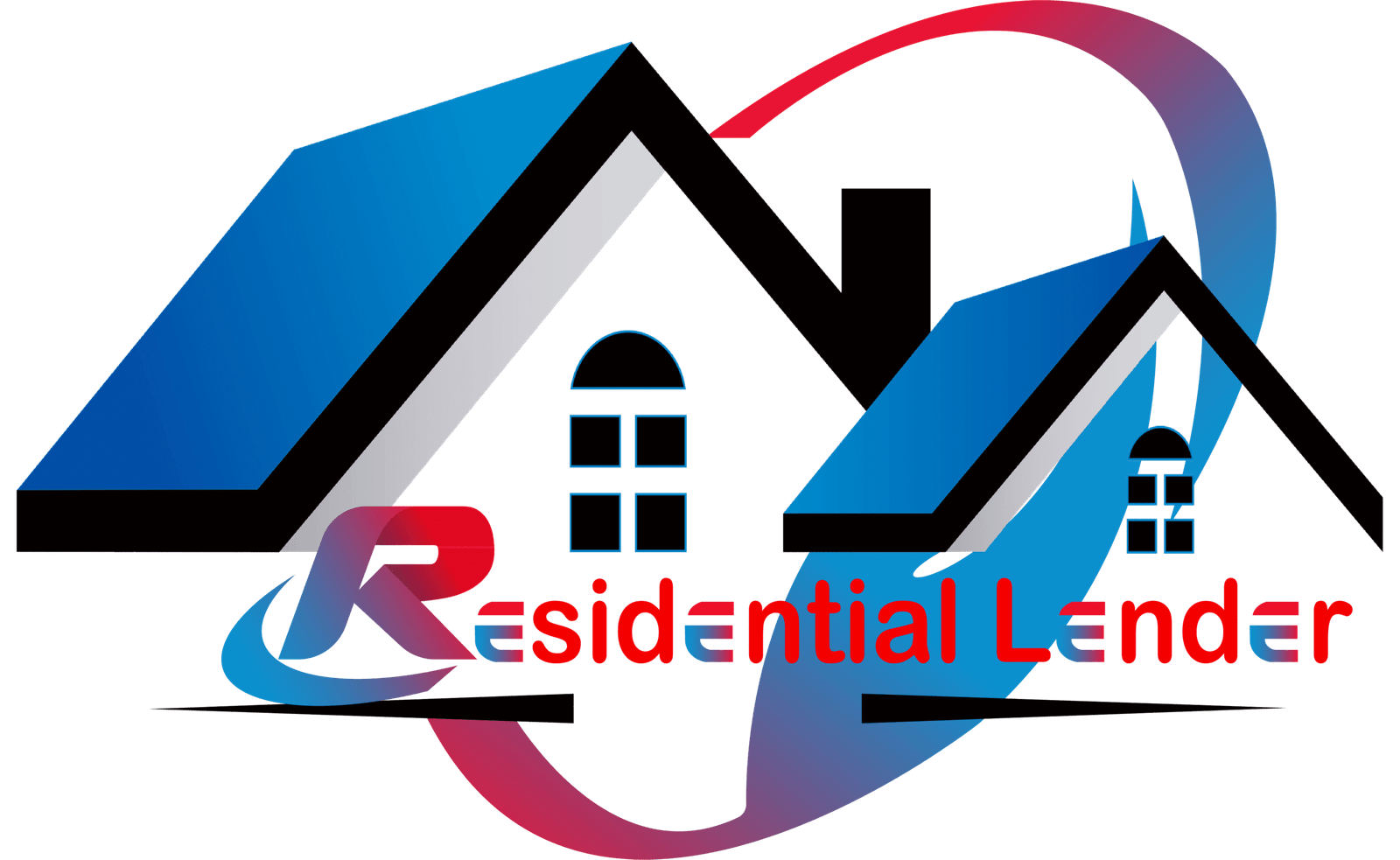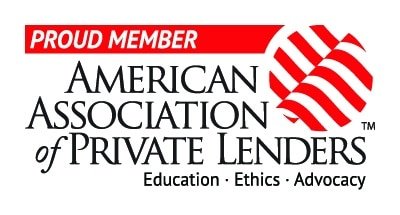Want to be an ambitious real estate investor in the US? Do you want to capitalize on opportunities in a fast-moving market? Median property values rose 3.4% year-over-year in November 2024, and some areas saw even bigger increases. This indicates that the market remains a viable investment opportunity. However, it can take up to 86 days from listing to close on a property, and it can take several months to buy a new one. This gap can be particularly challenging for even the most experienced buyers. Read on to learn how a bridge loan can help you deal with these changes and take advantage of good deals.
What is a Bridge Loan?
For the most part, a bridge loan is a short-term form of financing that is used to “bridge the gap” between two real estate deals. Traditional mortgages can take weeks or months to process. Still, bridge loans offer fast funding, allowing investors to act quickly and effectively in highly competitive markets. They are usually backed by property and are repaid when the owner obtains long-term financing or sells the property.
Why Consider Bridge Loans for Your Investment Properties?
Bridge loans are ideal for various situations involving investment properties, as they provide flexibility and speed where traditional loans often fall short. In everyday life, they come in handy in the following conditions:
- Fix-and-Flip Projects: When buyers purchase run-down properties, renovate them, and then quickly sell them for a profit, bridge loans provide them with the necessary quick cash to cover the costs of buying and renovating the property. They let you take advantage of high-potential opportunities before your competitors do, so you can keep making money while the renovations are going on.
- Fix-and-Hold / Fix-and-Rent Projects (BRRRR Strategy): A bridge loan can help you pay for the original purchase and repairs on a property that you want to buy, fix up, and then rent out for long-term income (the Buy, Rehab, Rent, Refinance, Repeat – BRRRR strategy). You can switch to a long-term rental loan once the property is stable and making money. You can use the funds from this loan to pay off the bridge loan and even get cash for your next purchase.
- Quickly Securing a New Property Before Selling an Existing One: When the market is competitive, you may find the perfect investment property but still have money stuck in a current one. With a bridge loan, you can buy a new property without having to wait for your old one to sell. This is a significant benefit because it eliminates the need for a sale contingency, making your deal more appealing to sellers.
Our Expertise: Residential Lender
At “Residential Lender,” we know how to invest in real estate in a way that makes sense. We’ve built a strong network that connects ambitious investors like you with over 200 private loans thanks to our 30 years of experience in underwriting. With extensive experience, we can create financing options tailored to your investment goals, providing the speed and flexibility you need to succeed.
What This Blog Will Cover
There is more to learn about bridge loans for real estate investors in the parts that follow. We’ll show you the best bridge loan lenders in the USA, talk about the most important things you should think about when picking a lender, and give you tips on how to apply for the loan that will help you reach your real estate goals.
Understanding Bridge Loans: How They Work and Why They’re Crucial
Bridge loans are powerful resources for real estate investors, as they provide crucial short-term cash flow in a market where speed and flexibility are paramount. Let’s talk about how they work and why they’re so important.
How Does a Bridge Loan Work?
The basic idea behind a bridge loan is that it allows you to use the equity in one property to finance the purchase of another. Let’s say you have a property with much equity, but your cash is tied up in it. There’s a new, profitable business chance, but you need to act quickly. A bridge loan can help with this.
This is a standard mechanic:
- Short-Term Financing: Bridge loans are typically designed as short-term solutions. The majority of them last between 6 and 12 months, but some can last up to 24 months. They’re not meant to be long-term debts; instead, they’re intended to serve as a short-term financial “bridge.”
- Collateral-Based: Typically, real estate is used as collateral for these loans. As security for the loan, the lender puts a lien on the property (or assets) in question. The Loan-to-Value (LTV) or Loan-to-Cost (LTC) percentage of the collateral property determines how much of a loan is given. Borrowers can usually get up to 85% of the value of the collateral property.
- Interest-Only Payments with a Balloon Payment: Borrowers usually only pay interest on their loans during the term. At the end of the term, they must make a substantial payment. This lowers regular costs and frees up money for other investments, like home improvements. When the loan time is over, the whole principal balance is due all at once. This is referred to as a “balloon payment.” This large payment is intended to be paid off when the house is sold or when long-term financing is secured, such as a mortgage or a loan for a rental property.
Key Features of Bridge Loans:
There are a few things that make bridge loans different from other types of loans:
- Speed: One of the key benefits of bridge loans is their ability to be approved and funded quickly. Bridge loans are often approved and funded within days, or even within 72 hours. This is faster than standard mortgages, which can take weeks or even months to close. Investors who need to act quickly on deals with short deadlines need this speed.
- Flexibility: Bridge loans are very adaptable and can be changed to fit a wide range of financial plans. Because they have less stringent requirements than traditional bank loans, they can be used for properties that might not be eligible for conventional financing, such as those in poor condition, requiring extensive repairs, or with a high number of vacant units. This freedom also applies to the terms of return.
- Higher Interest Rates: Typically, bridge loans have higher interest rates than conventional loans. This is because they are shorter-term, offer faster funding, and are often riskier because they are used for properties that don’t yet qualify for long-term financing. Most of the time, these rates are between 6% and 12% or higher, plus transaction fees. Even though the price may seem high, it is often worth it due to the quick access to capital and the opportunity to generate additional income from the purchase.
- Loan Amounts: How much you can borrow with a bridge loan is mainly based on how much the property you use as collateral is worth. To determine how much of a loan to offer, lenders assess the property’s current value and, for fix-and-flip projects, its “After Repair Value” (ARV).
Who Benefits from Bridge Loans?
For individuals and businesses requiring quick, temporary funding for real estate transactions, bridge loans are the ideal solution. They are invaluable for:
Real estate investors are the primary group that will benefit the most. More specifically, those who:
- Fix-and-Flip Projects: Bridge loans are an excellent way for investors to secure the necessary funds to purchase and renovate property in poor condition, allowing them to be sold quickly.
- Fix-and-Hold / Fix-and-Rent Projects (BRRRR Strategy): Investors who employ the BRRRR method can secure bridge loans to purchase and renovate homes, then convert them into long-term rental properties.
Individuals Needing to Quickly Close on New Investment Property Purchases Before Their Current One Sells: If you’ve found a great investment property but your money is stuck in one that hasn’t sold yet, a bridge loan lets you buy the new property without having to rush through a closing at the same time.
Those Navigating a Competitive Real Estate Market: When there is little inventory on the market but high demand, sellers are often very interested in cash deals or offers that can be closed quickly. With a bridge loan, investors can make competitive and non-contingent offers, giving them a significant advantage over those seeking a standard mortgage.
To put it simply, bridge loans provide buyers with the financial flexibility they need to succeed in rapidly changing real estate markets.
What to Look for in the Best Bridge Loan Lenders
It is essential to consider more than just the interest rate when selecting the best bridge loan lender for your real estate business projects. A lender that understands your needs and offers a strong, straightforward, and quick process is the key to a truly successful relationship. Look for these things:
Experience and Reputation
The lender’s history is probably the most crucial factor to consider.
- Proven History: It is best to find lenders that have been giving money for real estate for a long time, especially for bridge loans. As a “Residential Lender” with 30 years of experience, we’ve navigated numerous market cycles and developed expertise in financing investment properties in a manner that is straightforward for everyone. Because they possess extensive knowledge, they can offer sound advice and deliver reliable service.
- Positive Reviews and Strong Market Presence: To establish a robust online presence, review your business on third-party review sites, industry forums, and gather testimonials. A lender that consistently receives good reviews and is well-established in the market, such as our network of 200 private lenders, demonstrates credibility, trustworthiness, and a commitment to client satisfaction.
Loan Products and Flexibility
Your spending plans are varied, and your lender should be able to work with them all.
- Diverse Loan Amounts and Terms: Do they offer a range of loan sizes to fit the needs of your project, from small fix-and-flips to big multifamily purchases? You could get a loan for 6, 12, or even 24 months, but are the terms open enough to fit your plan for when you want to pay it off?
- Ability to Customize for Various Property Types: Ensure the lender has experience with the type of properties you intend to purchase, such as single-family houses, mixed-use properties, multifamily units, or rental properties that require a “bridge to rent” solution. Their experience with these types of assets demonstrates that they have a better understanding of the risks and opportunities associated with them.
- Consideration for Various Debt-to-Income (DTI) Ratio Situations: Bridge loans are typically based on assets; however, lenders need to be prepared to evaluate different borrower financial profiles, including varying DTI ratios. This is especially true for new investors or individuals whose income streams fluctuate frequently. Some lenders may be less strict on DTI if the house is worth a significant amount and there are plans to sell it.
Transparent Fees and Costs
A good lender will provide you with a clear, itemized list of all costs upfront. Among these are:
Detailed Breakdown: A lender you can trust will provide you with a clear, written list of all costs upfront. In this are:
- Origination fees: These fees, typically ranging from 1% to 3% of the loan amount, are paid to the lender for processing the loan.
- Appraisal fees: The fees charged for determining the value of a property.
- Underwriting and processing fees are the costs associated with reviewing and underwriting the loan.
- Court fees cover the costs of court paperwork and the closing process.
- Legal fees, including title insurance, and sometimes an “exit fee” when the loan is paid off, are also costs associated with it. However, many reputable lenders don’t charge this.
Avoiding Hidden Charges: Be cautious of lenders who are unclear about fees or who rush you into an agreement without providing all the necessary information. Request a comprehensive loan quote that includes all applicable fees and charges.
Speed and Efficiency
When the property market is hot, time is money.
- Crucial for Investors: Being able to close a deal quickly can mean the difference between making money on a chance and losing it to a rival. Look for lenders who make it clear that they can give you money quickly.
- Streamlined Application and Approval Processes: Lenders that utilize technology to simplify their processes can expedite the application, screening, and approval processes. Learn about their typical closing times and the necessary paperwork to ensure a smooth and efficient deal process. A few lenders say they can give you money in as little as two weeks.
Underwriting Expertise
What you go through depends on how good the lender’s screening team is.
- Value of an Experienced Underwriting Team: Our underwriting team at “Residential Lender” has much experience and knows how to handle the specific needs of real estate investments. They can quickly and accurately tell you if your project will work, how strong your exit plan is, and how much the collateral property is worth. This knowledge reduces delays and instills confidence in the lending choice.
- Understanding Specific Needs: They should be adept at considering more than just simple property purchases when evaluating investments. This means understanding how value-added returns can impact fix-and-flip projects, the potential rental income from fix-and-hold strategies, and how the broader market affects your business.
Customer Service and Communication
During the loan process, effective communication is crucial.
A Responsive Loan Lender is Vital: You need a loan that is easy to contact, responds quickly, and is ready to answer your questions. Good communication builds trust and keeps you informed about the progress of your loan at all times. For better results, look for lenders that assign a loan officer or other person you can contact about any issues that arise.
By putting these things in order of importance, you can find a bridge loan lender that not only gives you the money you need but also helps you make smart real estate business decisions.
5 Best Bridge Loan Lenders You Should Consider
People who own property need to find a good company that offers bridge loans. There are many choices, but most of them can be grouped into a few main groups. Each group has pros and cons.
Lender Category 1: Private Money Lenders (like us!)
Private money lenders are a good choice for real estate owners seeking to generate substantial returns from their properties. They are typically individuals or small investment groups that lend money directly, often using their funds or the pooled money of many investors.
- Why they are often among the best bridge loan lenders: Private money lenders are great at being quick and flexible. Lenders don’t base their decisions on strict credit scores or standard proof of income. They instead consider the property’s value and its potential uses. They are great for when you need to buy an investment property quickly, such as when you plan to renovate and resell it, or when the deal is too complex for a bank to accept.
- Focus on the property’s potential: This is a key aspect that makes it unique. They consider the “after-repair value” (ARV) and the potential return, which makes them more likely to fund deals on homes that are in poor condition, require extensive repairs, or have unique features.
- Ideal for quick investment property purchases and complex deals: They can give loans and money quickly because they don’t have as many rules and laws. Usually, it only takes a few days.
- Our Advantage: As a “Residential Lender,” we connect buyers with our extensive network of 200 private lenders and investors to facilitate loan approvals. Our vast network enables us to find the right lender for your project, even if it’s a niche or challenging one.
Lender Category 2: Hard Money Lenders
People often use the terms “private money lenders” and “hard money lenders” to refer to the same thing. On the other hand, hard money lenders are typically more organized businesses or firms that specialize in lending money for real estate. Most of the time, they have institutional or pooled investor funds.
- Similar to private money, but often for higher-risk scenarios. Hard money lenders may be even more eager to make deals on properties they consider risky because the collateral is what they care about most. An investment loan is based on the value of assets.
- Emphasis on speed and collateral: Their main job is to make it easy to get cash, and land is the best way to keep people safe.
- Explain their role in short-term financing for distressed properties: They are typically the best choice for investors seeking to purchase properties that are severely damaged, foreclosed, or require extensive rehabilitation before securing traditional financing.
- Higher interest rates than conventional loans: The costs and interest rates on hard money loans are usually higher than those on regular loans. There may be fees and interest rates ranging from 10% to 18% or higher, in addition to the loan amount. This is because the loan is considered high-risk and needs to be repaid promptly. The owner can quickly carry out their plan and pay back the loan, so this higher cost makes sense.
Lender Category 3: Regional Banks/Credit Unions
Some regional banks and credit unions do offer bridge loans for investment properties, but not many do. Most of the time, these loans are used to buy a new property before selling an old one.
- May offer bridge loans, sometimes with slightly lower interest rates for qualified borrowers. There’s a chance that you have good credit and are already a valued customer with a bank or credit union in your area. Then, they might be able to give better terms on bridge loans than private or hard money lenders.
- Potentially more stringent bridge loan requirements. But their requirements are usually the same as those of regular lenders. This means that they have stricter rules regarding factors such as debt-to-income (DTI) ratios, credit scores (typically 700+), and the condition of the dwelling.
- May take longer for approval compared to private lenders: It takes them longer to accept and close deals because their internal processes are often more complicated. This can be a big problem in an investment market that moves quickly.
Lender Category 4: Online Lenders Specializing in Investment Real Estate
In this digital age, new types of lenders have emerged that primarily operate online and often utilize technology to streamline the loan process.
- Convenience of online applications: Their platforms offer easy-to-use online apps that simplify the initial steps of obtaining a loan, making it more accessible from anywhere.
- Often catering to specific niches, such as fix-and-flip, Many online lenders have enhanced their services to support better real estate investors who employ popular strategies like “fix-and-flip” by offering them improved products and faster approvals.
- Varying loan amounts and terms: It’s essential to carefully compare online lenders, as their terms and loan amounts can vary significantly. Some may only provide small amounts for one-time jobs, while others can handle larger, more complex loans.
Lender Category 5: Specialized Investment Property Lenders (like us!)
This group has a broader range of financial partners for real estate owners who are committed to their business. In addition to bridge loans, these businesses offer a variety of other financing options.
- Highlight our comprehensive offerings beyond just bridge loans: Our company, “Residential Lender,” does more than just bridge loans. We offer a wide range of financing options, including DSCR (Debt Service Coverage Ratio) loans for long-term rentals, construction loans for building from scratch, and other specialized loans specifically designed for investment properties.
- Ability to assist with various investment property purchases, including properties that aren’t just single-family homes, like mixed-use buildings, multifamily homes, and business investment properties. As experts, we understand how each financial plan works and the associated risks.
- Our role as a correspondent lender and table funder offers diverse solutions. As a correspondent lender, we utilize our capital to originate, process, and disburse loans. We can quickly close loans at the closing table as a table lender by using funds from multiple institutional partners. Because we can do two things at once, we can offer the broadest range of options at the most competitive prices. This provides investors with unmatched access to capital and flexible terms for purchasing almost any investment property.
Bridge Loan Requirements and Considerations
Any real estate investor needs to understand the ins and outs of bridge loans, including their pricing and requirements. It ensures you’re ready and can accurately determine the total cost of your project.
Key Eligibility Factors
Bridge loans are known to be more flexible than traditional mortgages. However, lenders still have specific requirements to ensure the loan is repaid.
Property Equity (for existing property): When you use a current property as collateral to pay for a new one, the equity you have in that property is significant. Most lenders require a substantial down payment (often 20% or more) because it reduces their risk of loss. Loan-to-Value, or LTV, is a term used to describe the percentage of a property’s current value that will be used to secure the loan.
Exit Strategy: This is probably the most important thing for lenders of bridge loans. Because bridge loans are only for a short time, lenders need to see a clear plan for how you will pay back the loan when it’s due. Some common ways to leave are:
- Sale of the acquired property: This is always the case with fix-and-flip tasks. Lenders will assess the expected “After Repair Value” (ARV) to determine if the house can be sold quickly.
- Refinancing into a long-term loan: The goal of fix-and-hold or fix-and-rent methods, such as the BRRRR method, is to secure a regular mortgage or rental property loan once the property is stable and generating income. Lenders will look at how well you can pay back the loan over a long period.
Sale of another property: Paying back the bridge loan with the money you get from selling an existing rental property or even your investment property.
- Other liquid assets: For full repayment, investors may utilize large cash reserves or other readily accessible assets, although this is less common.
- Lenders will scrutinize the realism and timeliness of your planned exit strategy. They may request proof, such as a listing agreement, pre-approval letters for long-term loans, or a detailed business plan.
Creditworthiness: Your credit past is still important, even if it’s not as strict as it is for traditional mortgages, especially for private lenders. A good credit score (usually 620 or higher for private lenders) shows that you have borrowed money responsibly in the past, which can help you get better terms and rates. However, the strength of the asset usually outweighs any minor credit issues.
Debt-to-Income (DTI) Ratio: Some bridge loan lenders, especially institutional ones, may look at your DTI ratio to see if you can afford the interest-only payments, especially if you’ll also be making payments on two other properties at the same time. If the asset and exit strategy are sound, private lenders tend to care less about DTI.
Costs Associated with Bridge Loans
When compared to regular mortgages, bridge loans have different costs and fees associated with them. To determine your actual return on investment, consider the following factors.
Origination Fees: These are the fees you pay the lender up front for handling and reviewing the loan. For most loans, the interest rate ranges from 1% to 5% of the loan amount. However, this can vary depending on the lender, the loan amount, and the perceived risk of the deal.
Closing Costs: In addition to the purchase fee, other closing costs can range from 2% to 5% of the loan amount. Often, these are:
- Appraisal fees: For valuing the property.
- Underwriting and processing fees: For the lender’s internal administrative work.
- Legal fees: For preparing and reviewing loan documents.
- Title insurance: To protect against claims on the property’s title.
- Escrow fees: For managing the closing process.
Higher Interest Rates: As previously discussed, the interest rates on bridge loans are typically higher than those on regular loans. Rates can range from 6% to 12% or even higher, depending on the lender, the loan-to-value ratio, the borrower’s credit history, and the state of the market. This is because they are short-term, they fund quickly, and the properties they support often have a higher risk profile.
Importance of Understanding the Total Cost: Although the interest rate is essential, what matters most is the total cost of the short-term loan. When determining the profitability of your project, ensure that you include all fees and interest payments. This will prevent you from being surprised and ensure the investment remains viable.
Bridge Loan Alternatives
Even though bridge loans are helpful, it’s good to know about other options and understand why a bridge loan might still be the best choice for you.
Line of Credit (LOC)
- Pros: They give you access to funds that you can draw and repay as needed up to a credit cap, have lower interest rates than bridge loans, and can be used again.
- Cons: It can take longer to set up and typically requires good credit and a substantial amount of equity in an existing home that has been occupied for an extended period. They may not be able to provide the large sum of money needed immediately for a new acquisition.
Cash-Out Refinance
- Pros: You can get wealth out of an existing home by refinancing your mortgage into a bigger one that might have lower long-term interest rates. It’s ideal for long-term hold strategies that require freeing up cash.
- Cons: Changing the terms of your primary mortgage is a lengthy process that can take weeks or months and incurs significant costs. You may also lose a favorable interest rate on your current mortgage. It’s not ideal for situations where you need to act quickly, such as quick buys or fix-and-flips.
Hard Money Loans
- Pros: As we’ve already discussed, these loans are often equivalent to private money loans, offering the same speed and flexibility, particularly for properties that are high-risk or in poor condition.
- Cons: They typically have the highest fees and interest rates, and the loan amounts may be smaller than those offered with some bridge loans, depending on the lender’s level of risk tolerance.
Construction Financing
- Pros: It is specially designed for constructing from scratch or significant repairs, and it provides money in draws as the work is completed. For long construction times, they may have better terms than pure short-term loans.
- Cons: Not often used as an alternative to a direct bridge loan for purchase unless the acquisition is part of a bigger, already approved construction project. The application process typically takes a considerable amount of time and is very thorough. It needs detailed project plans, budgets, and checks on the contractors.
Emphasize why a bridge loan might still be the best option for speed and specific investment scenarios.
Even with these options, a bridge loan remains the preferred choice for real estate investors seeking speed, flexibility, and lending based on assets. A well-structured bridge loan is the fastest and easiest way to get the money you need when you need to close on a new investment property in a few days or weeks, when the property itself is the primary collateral, or when you need to bridge a financial gap before you plan to sell the property or refinance it for the long term. In a market that moves quickly, it’s your secret tool.
Maximizing Your Bridge Loan Success
Obtaining a bridge loan is only the first step; to make it work as effectively as possible, you need to plan and execute your strategy carefully. Ensure your bridge loan truly becomes your secret weapon by following these steps.
Having a Solid Exit Strategy
You can’t say enough about the importance of having a clear exit plan. A bridge loan is intended for use only for a short period of time. Lenders will carefully review your repayment plan to ensure it can be maintained. A clear and attainable repayment plan gives the lender confidence and speeds up the loan approval process.
- Selling the existing property is a common way to exit a deal, especially for individuals who want to purchase a new home before selling their old one, or for buyers who need to sell one asset to fund the purchase of another. Ensure your home is ready to sell and that the price is fair, allowing you to pay off the bridge loan quickly.
- Refinancing into a long-term loan (e.g., DSCR loan for fix-and-rent): Fix-and-hold or fix-and-rent investors can use a bridge loan to acquire a property until it is stable enough for permanent funding. If this sounds like you, a DSCR loan is an excellent choice because the loan is approved based on the rental income from the property instead of your income or DTI. A firm exit is shown by a pre-approval or a straightforward way to a DSCR loan.
- Securing permanent financing encompasses a range of long-term loan options, including conventional mortgages, commercial mortgages, and other investment property loans. Your lender will want to ensure that you have a solid plan and the necessary credentials to secure permanent financing before the bridge loan expires.
Working with a Knowledgeable Lender
The company you choose can have a significant effect on how well your bridge loan works. A lender with much knowledge and good connections is a valuable and necessary partner.
- How our 30 years of underwriting experience can guide you: “Residential Lender” has decades of experience and a deep knowledge of complex real estate investment situations that no one else does. Our experienced screening team can quickly determine if your project is feasible, identify any potential issues that may arise, and arrange a bridge loan tailored to your specific needs. We’ve experienced a range of different market conditions. We can offer you advice that will help you mitigate risks and secure the best funding.
- Benefits of our network of 200 private lenders and investors: A significant advantage is our extensive network of lenders and investors. It means we don’t have to stick to a set of rules for lending money or a fixed amount of cash. We can use the resources of 200 private investors and lenders to find the best terms, rates, and loan products for your specific deal. This way, we can ensure you receive the best answer possible. This broad reach is beneficial for properties that aren’t typical or complicated business plans.
Understanding the Real Estate Market
When using short-term loans, such as a bridge loan, timing and understanding the market are crucial.
Timing is everything with short-term financing: bridge loans are quick and easy, enabling you to capitalize on opportunities that require swift action. However, due to this speed, your plan to leave must be well-timed. If it takes too long to sell a house or get long-term financing, you may have to pay extra fees or higher interest rates for extensions, which can cut into your profits.
Being aware of market trends in the USA is crucial, as it involves understanding both the U.S. real estate market as a whole and the specifics of the local market. As of the middle of 2025, mortgage rates in the U.S. were still high (around 6.7% to 7%), and home prices were still high, though home values may be slowly going up by only 2% to 3% per year. In some places, inventory levels are slowly rising, changing some markets from being controlled by sellers to having a more even playing field. However, a supply shortage persists in many popular areas, particularly in the West and Northeast. In terms of investors, this means:
- Patience and careful selection: Even though you need to move quickly, keep in mind that sales may take a little longer in some places and you may have to keep competing in others.
- Focus on value-added: Since prices aren’t increasing as rapidly as they used to, fix-and-flip methods require strong value-added components to generate a profit.
- Rental market strength: Fix-and-hold or rent-to-own strategies remain attractive in the multifamily sector, where demand remains high despite recent peak construction activity. Low turnover rates in many areas indicate that people are still seeking places to rent.
- Local market research: Even though national trends are significant, the conditions of your local market will have a substantial impact on how well your project does, especially when it comes to the speed of sales and the desire for rentals.
Knowing how the market works right now, having a solid exit plan, and getting advice from a seasoned lender like “Residential Lender” can all significantly improve your chances of success with bridge loans and help you take advantage of profitable real estate investment opportunities all over the USA.
Why “Residential Lender” is Your Go-To Partner for Investment Property Financing
As a real estate investment loan company, “Residential Lender” is more than just another option. We’re your strategic partner, and we have the knowledge and tools to help you do well in the fast-paced US market.
Our Unique Value Proposition:
We are unique because we possess extensive knowledge and numerous connections, and we aim to explore all our funding options.
- We are a table lender and correspondent lender. It’s great that you can do two things at once. As a correspondent lender, we use our funds to originate loans, ensure their quality, and provide ongoing support. We are responsible for the entire process, enabling us to make decisions more quickly and establish more transparent terms and conditions. Our extensive network of investors and institutional partners lets us fund loans at the closing table as well. This is called being a “table lender.” This means we have multiple ways to obtain money and can always offer you competitive choices that fit your needs, even if your situation is complex or unique.
- 30 years of underwriter expertise: We stand out because we have extensive knowledge in real estate underwriting. We’ve navigated numerous market cycles and possess a deep understanding of the intricacies of investing in real estate, from determining property value to understanding how broader economic trends impact returns. This knowledge enables you to receive prompt assistance, expedited processing, and a higher likelihood of loan approval.
- An extensive network of 200 private lenders and investors: A significant part of our value lies in this vast network. It provides us with access to money that you can’t obtain anywhere else. We can connect you with the right funding source that understands your vision and is ready to invest, regardless of how unusual or familiar your project may be.
Comprehensive Loan Offerings (Beyond Bridge Loans):
Although bridge loans are what we do best, our dedication to your success extends far beyond short-term loans. We aim to be your one-stop shop for nearly all your financing needs for home investment properties. We can help with:
- Hard Money Loans: For quick, asset-based financing, often for distressed properties.
- DSCR Loans: Ideal for long-term rental property investments, qualifying based on the property’s cash flow.
- USDA B&I Loans: For businesses in rural areas, potentially including specific investment properties.
- SBA Loans: For various business purposes, which can sometimes include real estate acquisition.
- FHA Commercial Property Investment Loans: For specific commercial or multifamily investment properties.
- Construction Loans: For ground-up development or significant rehabilitation projects.
- Term Loans: Standard long-term financing solutions.
- No-Doc Loans & Lite-Doc Loans: Streamlined documentation options for qualified investors, offering faster approvals.
- State Income Loans: For borrowers who may not have traditional income documentation but can demonstrate repayment ability.
We cater to all residential investment property types, including:
- Fix-and-Flip: Rapid Acquisition and Renovation Financing.
- Fix-and-hold: Loans for properties intended for long-term rental income.
- Fix-and-rent: Specifically designed for the BRRRR strategy.
- Mixed-use: Properties combining residential and commercial spaces.
- Multifamily: Financing for apartment buildings and other multi-unit dwellings.
- Rental investment properties: A broad category covering all income-generating residential real estate.
Referral Programs
Being in the real estate business, we believe in forming strong connections with others. That’s why we have connection programs that are good for both new and experienced agents. Some of these programs are exclusive to our clients, while others are open to the general public. As a broker, you may want to offer your clients more financial options by expanding your services. After that, we’d like you to be our partner. Utilizing our expertise and extensive network will help your business thrive and deliver superior service to your clients.
Client-Centric Approach
Our main goal is for you to succeed. We offer more than just loans; we provide complete help.
- Financial consulting services: Our goal is to help individuals enter the real estate market and succeed in it. The real estate business can be complex, but our team is here to provide you with valuable advice and innovative ideas.
- Our commitment to simplifying complex financial concepts: There are times when securing a mortgage for an investment property can be challenging. Many people struggle to understand complex financial concepts. We work diligently to ensure that you fully understand your options, the terms, and the potential results of your investment choices.
With “Residential Lender” as your partner, you can get the most out of buying homes in the US.
Conclusion
Bridge loans are beneficial for real estate owners in the U.S. market, which is characterized by a fast-paced environment and numerous opportunities. They give you essential speed and flexibility, so you can take advantage of deals that need to be done quickly, pay for renovations, and close property deals when standard financing doesn’t work. But you can get the most out of a bridge loan if you work with the “best bridge loan lenders.” These are partners who offer more than just financial support; they also provide valuable advice, honesty, and a genuine desire for your success.
The right lender knows the ins and outs of different financial strategies, gives you clear terms, quickly processes your loan, and is there for you with expert advice. This is precisely what “Residential Lender” gives you.
Ready to bridge the gap to your subsequent successful investment property purchases?
Don’t miss out on chances that could be very useful. Get in touch with “Residential Lender” right away to set up a personal financial meeting. Find out how our extensive network and deep knowledge of the business can help you find the best short-term loan option and more. We promise that the closing costs will be transparent and that the loan amounts will be flexible, so they fit your needs.
- Want to find the best bridge loan lenders? Contact us to schedule a meeting.
- Talk to our experts to find out more about how a bridge loan can help you buy a rental property.
- Agents: Enhance what you offer your clients and increase your chances of earning money! Check out our referral schemes, both exclusive and not exclusive, right now!
Get in touch with us to find out more about how we can help you with bridge loans and other types of financing that fit your needs in today’s fast-paced real estate market. Let “Residential Lender” be the key to making wise investments.
FAQs
Q1: What is the typical Loan-to-Value (LTV) for a bridge loan, and how is it determined?
A1: A bridge loan. Most of the time, LTVs are between 60% and 80% of the property’s current value, or a portion of the After Repair Value (ARV) in the case of a fix-and-flip scenario. The LTV depends on how the investor values the collateral property, which may include an appraisal, and the amount of risk they are willing to take. For example, the initial LTV might be smaller for a property that is in bad shape. On the other hand, a more stable object might be able to get a higher percentage. Lenders like Residential Lender place a significant emphasis on the asset’s potential, which allows these estimates some room for error.
Q2: Can I get a bridge loan with a less-than-perfect credit score, or even with bad credit?
A2: Of course, you can get a bridge loan even if your credit score isn’t great (called “bad” credit) if you go through public or private money lenders. Private lenders care more about the value in the collateral property and how well you plan to exit the loan than traditional lenders do, who base their decisions on things like credit scores and debt-to-income ratios. Even though having good credit can get you better terms, lenders like “Residential Lender” will also look at how much money you have and how likely it is that your business project will work.
Q3: How quickly can I expect to receive funds from a bridge loan after approval?
A3: One significant benefit of bridge loans is how quickly they can be paid back. It can take weeks or months for traditional loans to be approved and funded. Bridge loans, on the other hand, are often accepted and supported much more quickly. You may receive the money in as little as 7 to 14 business days, or even sooner if you need it right away, depending on the lender and the complexity of your deal. When it comes to fast payments, lenders that focus on investment real estate, like “Residential Lender,” often lead the market. This is because they have streamlined processes and can offer direct funds.
Q4: Are the interest payments on a bridge loan tax-deductible for real estate investors?
A4: In most cases, yes, you can reduce the interest you pay on bridge loans used to invest in real estate. If you own investment buildings instead of your own home, the interest is typically considered a business expense. But tax laws are complicated and can change, so it’s always best to talk to a qualified tax advisor or accountant to find out what the rules are for your case and make sure you’re following them correctly.
Q5: What happens if I can’t repay my bridge loan by the due date? Can it be extended?
A5: If you think you might have trouble paying back your bridge loan by the due date, you should talk to your lender right away. Most reputable lenders, like “Residential Lender,” are ready to help borrowers figure out a way to pay their debt. It is often possible to extend the term of a bridge loan. However, extensions typically come with additional costs, such as an extension fee, and sometimes the interest rate is slightly higher.
Failing to communicate with the lender or not repaying the loan on time can result in severe consequences, including higher default interest rates, additional fees, damage to your credit score, and ultimately, the risk of losing the collateral property through sale. Sometimes, you can obtain a re-bridging loan, which is a new bridge loan used to pay off the old one.








